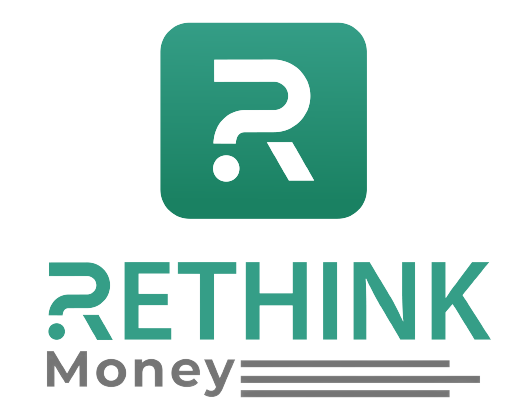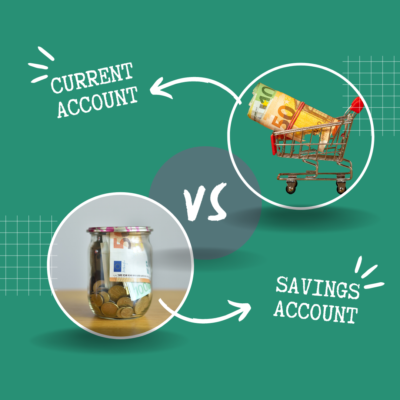Debt is a reality that most of us face at one point or another. For some, it may seem an insurmountable task to become debt-free, especially in today’s economic climate. However, with the right knowledge and perseverance, it is achievable, even in Ireland where the cost of living can be quite high. Let’s delve into this journey towards financial freedom.
Understanding the Concept of Debt
The Nature of Debt
Debt, in its most basic form, is money that is borrowed and must be paid back. But it isn’t always negative. At times, debt can be beneficial, such as mortgages or student loans which can be seen as investments. However, when mismanaged, it becomes a burden.
Types of Debt
Typically, debts can be classified into two categories: secured and unsecured. Secured debts, like mortgages, are backed by collateral, while unsecured debts, like credit card debts, lack this protection.
The Impact of Debt on Life
Effects on Financial Freedom
Debt can significantly impede financial freedom. It restricts your disposable income and can prevent you from achieving financial goals, such as purchasing a home, investing, or retiring early.
Impact on Mental Health
The stress of debt can take a toll on mental health, causing anxiety, depression, and sleep issues. It’s not just a money matter—it’s a well-being matter.
The Importance of a Debt-Free Life
Living a debt-free life means financial stability and peace of mind. It opens up opportunities for investment and growth and allows you to live life on your own terms. Who wouldn’t want that?
Steps to Become Debt-Free in Ireland
Achieving a debt-free status isn’t a magical overnight process. It takes planning and discipline. But don’t fret, let’s break it down.
Assess Your Debt
The first step is to know exactly what you owe. Gather all your bills, loan statements, and credit reports. Understanding your financial situation is the foundation to formulating a solid debt-free strategy.
Create a Budget
A budget is a roadmap to your spending. It helps you see where your money is going and where you might need to cut back.
Decrease Expenses
This might sound like a no-brainer, but reducing expenses can be more complex than it appears. It involves differentiating between needs and wants, identifying spending leaks, and sometimes making sacrifices. Remember, every little bit counts!
Increase Income
Consider seeking a raise, starting a side hustle, or selling unused items. Increasing your income not only accelerates your debt payoff plan but also adds a bit of comfort to your budget.
Prioritise Debts: Snowball and Avalanche Methods
When dealing with multiple debts, it’s essential to have a strategy in place. Two popular methods to tackle debts are the Snowball method and the Avalanche method.
Snowball Method:
This method, popularised by money-management guru Dave Ramsey, involves paying off your debts in order from smallest to largest, regardless of the interest rate. The idea is to gain momentum as you knock out each debt, much like a snowball gaining size as it rolls down a hill.
While this method may not save you the most money on interest payments, it has a psychological advantage. By quickly paying off smaller debts, you can experience a sense of accomplishment and be motivated to continue the debt-free journey.
Avalanche Method:
In contrast, the Avalanche method involves paying off your debts starting with the highest interest rate first, while making minimum payments on the rest. This approach is mathematically advantageous as it minimises the amount of interest, you’ll pay overtime. However, it may require more patience as it might take longer to fully pay off a debt, especially if your highest interest rate debt also has a large balance.
Both methods have their pros and cons, and the choice depends on your financial situation and personal preference. Whether you prefer the quick wins of the Snowball method or the interest-saving Avalanche method, the important thing is to stick with the plan until all your debts are cleared.
Remember, the journey to become debt-free is not a sprint, but a marathon. With patience, determination, and discipline, you can surely reach the finish line.
Create an Emergency Fund
Unexpected expenses are a part of life. Having an emergency fund provides a safety net, preventing you from sinking deeper into debt.
Professional Help
Don’t be shy to seek professional help if your debt situation seems overwhelming.
Debt Management Companies
Such companies can negotiate with creditors on your behalf, possibly reducing the amount you owe or the interest rate.
Insolvency Practitioners
In extreme cases, you might need the services of an insolvency practitioner. They can provide advice and assist with insolvency procedures like Debt Settlement Arrangements or Personal Insolvency Arrangements.
Legal Protections in Ireland
Personal Insolvency Arrangements
Ireland provides various legal protections for individuals struggling with debt. A Personal Insolvency Arrangement is a formal agreement with creditors that includes a debt settlement plan which can last up to 7 years.
Bankruptcy
If your debts are so substantial and you’re unable to repay them, bankruptcy might be the only option. However, it should be the last resort due to its severe consequences on your credit score.
Financial Literacy and Debt Management
Being financially literate is like being fluent in the language of money. It means you know how to earn money, manage it wisely, make it grow, and even use it to make a difference in the world. It’s about mastering the art of handling a bank account, using credit cards judiciously, deciphering loan agreements, and dodging financial frauds.
When it comes to debt management, financial literacy shifts from being just useful to absolutely indispensable. It throws light on the nitty-gritty of your debts—the terms, the interest rates, and the implications of your financial decisions. Armed with this knowledge, you can craft a budget, appreciate the safety net of an emergency fund, and understand the power of saving and investing for tomorrow.
Getting started with financial literacy may seem daunting but remember, every expert was once a beginner. You’re not alone in this journey; a wealth of resources awaits you online. They are ready to help you take your first steps and guide you as you move forward.
For those who prefer a personal touch, financial advisors are like private tutors in your financial literacy journey. They offer tailor-made advice, crafted to suit your unique situation, ensuring you’re not just learning but truly understanding.
Debt Prevention Tips
Save for Emergencies
As mentioned earlier, having an emergency fund can prevent unnecessary debt. It’s advised to save at least three to six months’ worth of living expenses.
Live Within Your Means
Avoid overspending and impulse purchases. Sticking to a budget helps maintain a lifestyle that’s within your financial capabilities.
Our Advice
Embarking on a journey to become debt-free is not an easy feat, but remember, it’s entirely achievable with the right mindset, tools, and resources. Understanding the strategies like the snowball and avalanche methods, being aware of legal protections, and improving financial literacy are all stepping stones on your path to financial freedom.
The most important thing is not to let the burden of debt overshadow your life. There’s always help available, and you don’t have to face it alone. Reach out to professionals, join supportive communities, and use the resources available to you.
If you ever feel overwhelmed or unsure about managing your debt, don’t hesitate to reach out to us. Our team is here to support you, provide advice, and guide you through your journey towards financial stability. Remember, the road to becoming debt-free starts with a single step. So, take that step today and begin your journey towards a more secure financial future. Please do not hesitate to contact us if you need any assistance. You can also book a free consultation here.
FAQs
Is it realistic to become debt-free in Ireland?
Absolutely! While the journey may be challenging, with careful planning and discipline, it’s definitely achievable.
Is getting professional help for debt management necessary?
Not always. However, in certain situations, particularly with large amounts of debt, professional assistance can be beneficial.
What is the worst kind of debt?
Typically, high-interest debts like payday loans and credit card debts are the worst. They accumulate interest quickly, making them harder to pay off.
Can I get a loan after becoming debt-free?
Yes, becoming debt-free improves your credit score, making it easier for you to secure loans in the future.
How long does it take to become debt-free?
The time it takes to become debt-free varies depending on your debt amount, your income, your expenses, and your debt repayment strategy.



